Kinhtedothi - Urban government organization - regulated in a chapter in the 2024 Capital Law (Chapter II) - is one of nine important groups of issues in the Capital Law.
Resolution No. 15-NQ/TW defines the task of "Completing the organization and apparatus of the Capital's government in the direction of streamlining, modernizing, operating effectively, efficiently, and interconnectingly, in accordance with the role, position, and requirements of development and management of the Capital in the new development period. Strengthening decentralization and delegation of power to the Capital in a number of areas to create initiative, increase autonomy, and self-responsibility in performing tasks associated with the power control mechanism".
The Capital Law 2024 fully institutionalizes the key requirements of Resolution No. 15-NQ/TW on the task of building and perfecting the organization of the Capital government, and at the same time legalizes the provisions that have been tested in practice to be appropriate in the resolutions of the National Assembly on piloting the urban government organization model and piloting a number of specific mechanisms and policies for the development of Hanoi , Ho Chi Minh City and a number of other localities.

Organize the capital's government to be streamlined, professional, modern, operate effectively and efficiently, and promote decentralization and delegation of power.
Regulations on the organization of government in Hanoi according to the urban government model (Article 8): Accordingly, the urban government organization of Hanoi includes:
- Local government in Hanoi city, districts, towns, cities under Hanoi city, communes and towns is a local government level including People's Council and People's Committee (Clause 1, Article 8).
- The local government in the ward in the city is the People's Committee of the ward (Clause 2, Article 8).
This regulation is built on the basis of the results of the 3-year pilot review of the urban government model in Hanoi City implementing Resolution No. 97/2019/QH14 dated November 27, 2019 of the National Assembly (no ward People's Councils are organized).
Strengthening the organization, personnel and authority of the City People's Council, People's Councils of districts, towns and cities under the City (Article 9, Article 11):
- The City People's Council elects 125 People's Council delegates; the number of full-time People's Council delegates is at least 25% of the total number of People's Council delegates; the full-time Standing Committee of the City People's Council includes the Chairman, no more than 3 Vice Chairmen and members, ensuring no more than 11 people; no more than 06 Committees are established to advise on specific fields (an increase of 2 Committees compared to current legal regulations) (Clause 1, 2, 3, Article 9).
- The People's Council of a district, town, or city has two Vice Chairmen of the People's Council; the total number of full-time People's Council delegates is not more than nine people; no more than three Advisory Boards for specific fields are established (an increase of one Board compared to current legal regulations) (Clause 1,2, Article 11).
The above regulations aim to improve the capacity, professionalism and efficiency of People's Councils at all levels in the context of not organizing Ward People's Councils. Increasing the number of full-time delegates not only enhances the quality of activities of People's Councils at all levels but also helps promote direct democratic mechanisms to better ensure the rights and interests of voters in particular, and ensure the people's mastery in general.
Adjusting tasks, powers, and organizational structure of the administrative apparatus towards increasing decentralization and delegation of power to authorities at all levels (Articles 9, 10, 12, 13, 14)
- Empower the City People's Council to decide on a number of specific issues regarding the organization and personnel of the People's Council: the number of full-time City People's Council delegates; decide on the number, name, and scope of responsibility of the Committees of the City People's Council; stipulate criteria for establishing and organizing Committees of the People's Councils of districts, towns, and cities under the city (Clause 4, Article 9); at the same time, the Law stipulates direct delegation of power to the Standing Committee of the City People's Council: assign the Standing Committee of the City People's Council the authority to approve the Deputy Head of the Committee and the Committee Members (Clause 3, Article 9); the authority to decide and report to the City People's Council at the nearest session on 3 contents related to measures to resolve sudden and urgent work, and adjust investment policies when necessary (Clause 5, Article 9).
- Empower the City People's Council to decide on issues of organization and administrative staffing based on the project submitted by the City People's Committee (Clause 4, Article 9):
+ The establishment, reorganization, name change, function adjustment, dissolution of specialized agencies and other administrative organizations under the City People's Committee that have not been regulated or are different from the regulations in documents of superior state agencies (ensuring that they do not exceed 15% of the number of agencies prescribed by the Government );
+ Regulations on the establishment, reorganization, and dissolution of specialized agencies and other administrative organizations under the People's Committees of districts, towns, and cities under the City that have not been regulated or are different from the regulations in documents of superior state agencies (ensuring that they do not exceed 10% of the number frame prescribed by the Government);
+ Determine the number of staff, civil servants, and public employees receiving salaries from the state budget managed by the City based on the list of job positions, population size, workload status, security, political and social safety characteristics in the area and the City's budget balancing capacity, ensuring that the ratio between the total number of staff compared to the total population does not exceed the national average ratio submitted to the competent authority for decision, helping to ensure that the public service human resources meet the practical requirements of the Capital Hanoi, in line with the orientation in Resolution No. 15-NQ/TW.
- Empower the City People's Committee to decide: adjust job positions, civil servant rank structure, and employee structure according to professional titles in accordance with the functions, tasks, powers, and organizational structure of agencies, organizations, and units under its management; decide to establish new public service units under the management of the City People's Committee based on principles, conditions, and criteria prescribed by law and according to the order and procedures prescribed by the City People's Council (Clause 2,3, Article 10).
- Clearly define the tasks and powers of the People's Committee, Chairman of the People's Committee of districts, towns, and cities under the city and the People's Committee, Chairman of the People's Committee of wards in the context of not organizing the People's Council of wards, focusing on new points on the division of tasks in the following areas: implementation of the Law on State Budget (the People's Committee of the ward has the tasks and powers of the budget estimate unit under the People's Committee of the district, town, and city under the city), implementation of public investment authorities (the People's Committee of the ward proposes and the People's Committee of the district, town, and city under the city decides on investment policies for projects using public investment capital in the wards under its management) (Article 12, Article 13).
The Ward People's Committee is authorized to decide on matters that, according to other legal documents, must be decided by the Commune People's Council or approved by the Commune People's Council before deciding or submitting to competent authorities for consideration and decision (Point e, Clause 1, Article 13). The Ward People's Committee does not have the authority to issue legal documents (Clause 2, Article 13).
The Chairman of the People's Committee of a district, town, or city under the City has the authority to appoint, re-appoint, dismiss, transfer, rotate, second, reward, discipline, and temporarily suspend the work of the Chairman and Vice Chairman of the People's Committee of a ward; and delegate the authority of the Chairman of the People's Committee of a ward according to the provisions of law (Clause 2, Article 12).
The Chairman of the Ward People's Committee is the head of the Ward People's Committee, responsible to the People's Council, People's Committee, Chairman of the People's Committee of the district, town, city under the City and before the law for the performance of duties and powers prescribed by law and according to decentralization and authorization (Clause 4, Article 13).
The purpose of adjusting the tasks, powers, and organizational structure of the administrative apparatus in the above regulations is to increase decentralization and delegation of power to authorities at all levels in the capital to create initiative, increase autonomy, and self-responsibility in performing the tasks of authorities at all levels in the capital.
Prescribing principles and contents of decentralization and delegation of authority of the People's Committee, Chairman of the People's Committee and other specialized agencies and administrative organizations under the People's Committee (Article 14)
- Regulations on decentralization and authorization of the City People's Committee to specialized agencies, other administrative organizations under the City People's Committee or the District People's Committee, Commune People's Committee; decentralization to public service units under the scope of management; authorization of the City People's Committee Chairman to the Vice Chairman of the City People's Committee, heads of specialized agencies, other administrative organizations, public service units under the City People's Committee or the District People's Committee Chairman (Clause 1, Article 14).
- Regulations on decentralization and authorization of the district-level People's Committee to specialized agencies, other administrative organizations under the district-level People's Committee or commune-level People's Committee, public service units under the management scope; authorization of the Chairman of the district-level People's Committee to the Vice Chairman of the district-level People's Committee, heads of specialized agencies, other administrative organizations, public service units under the district-level People's Committee or Chairman of the commune-level People's Committee (Clause 2, Article 14).
- Regulations on the delegation of authority to handle administrative procedures of specialized agencies and other administrative organizations under the City People's Committee to the District People's Committee or specialized agencies under the District People's Committee (Clause 3, Article 14).
- Regulations on the delegation of authority by the People's Committee and the Chairman of the People's Committee at the commune level to civil servants of the People's Committee at the commune level (Clause 4, Article 14).
To ensure the supervision and control of the exercise of power in implementing the decentralization and authorization mechanism, the Law assigns the City People's Council to specify in detail the scope of tasks and powers delegated to civil servants of the People's Committee at the commune level, delegated to public service units, and heads of public service units; the City People's Committee issues documents regulating the adjustment of procedures, processes, and powers of relevant agencies in the process of handling work in accordance with the implementation of decentralized and authorized tasks and powers to ensure the requirements of administrative procedure reform, not to prescribe additional components of the dossier, not to increase requirements, conditions, and time for handling currently applied procedures (Clause 6, 7, Article 14).
Attracting and using high-quality human resources to serve the development of the Capital (Article 15, Article 16)
Resolution No. 15-NQ/TW defines the direction: “Focus on building a team of cadres, especially leaders and managers at all levels with high capacity, qualifications, professionalism, courage, good moral qualities, exemplary, dynamic, creative, daring to think, daring to do, daring to take responsibility, with the will to rise up, and the desire to contribute to the development of the Capital. Have appropriate mechanisms and policies to attract and make good use of high-quality human resources domestically and internationally; effectively implement the mechanism to encourage and protect dynamic and creative cadres for the common good according to regulations”.
Attracting and recruiting high-quality human resources (Clause 1,2 Article 15; Clause 1 Article 16)
- Expanding the target audience: Vietnamese citizens with outstanding moral qualities, qualifications, abilities, practical experience, working domestically or abroad, with special works, products, achievements, merits or contributions to the development of a field or industry of the Capital; Foreigners with high professional qualifications, a lot of practical experience, works or products that have been accepted, recognized, and applied with high efficiency (points a, c, clause 1, Article 16).
- Diversify forms of attraction and recruitment: the attraction objects are Vietnamese citizens who can be considered for selection, accepted as civil servants, public employees or signed contracts to perform professional and technical work, including taking on management and operational positions at public service units under the management of the City, in all fields of culture and arts, health, education and training, science and technology, information and communication...; the attraction objects are foreigners who are signed contracts to perform the tasks of building, developing, managing and protecting the Capital. This regulation will create the ability to connect in attracting and using high-quality human resources between the public and private sectors (Article 16).
The Law also empowers heads of specialized agencies and other administrative organizations under the City People's Committee and Chairmen of District People's Committees to sign term contracts with people who meet the conditions to hold certain job positions in specialized professional groups and shared professional skills in those agencies (Clause 2, Article 15).
- Treatment regime: flexible treatment regime suitable for each subject and form of attraction (being selected, accepted or signing a contract) and assigned to the City People's Council to regulate (point d, clause 1, Article 16).
The above regulations aim to meet the requirements of a professional, dynamic, modern administrative apparatus and the socio-economic development requirements of the capital, overcoming the shortcomings and limitations of the policy of employing talented people in Hanoi in recent times.
Unify the civil service and civil servant regime from the commune level and the regime of use and treatment for cadres, civil servants and public employees under the management of the City (Clause 1, Article 15):
Cadres and civil servants working at communes, wards and towns are cadres and civil servants according to the provisions of the Law on Cadres and Civil Servants under the administrative payroll assigned annually to the district level, elected, recruited, managed and employed according to the provisions of the law on cadres and civil servants. This regulation creates favorable, flexible and proactive conditions for recruitment, transfer, rotation and job position conversion between cadres and civil servants at the commune and district levels, synchronization of policies on salaries, civil servant ranks, remuneration regimes, etc.
Regulations on implementing the regime of receiving additional income based on the capacity and work efficiency of cadres, civil servants and public employees (Clause 3, Article 15):
Based on the implementation of Resolution No. 27-NQ/TW dated May 21, 2018 of the Central Executive Committee on reforming salary policy for cadres, civil servants, public employees, armed forces and employees in enterprises; referring to the experience of Ho Chi Minh City, the Law assigns the City People's Council to use the source of increased revenue and the remaining source of salary reform to implement the regime of additional income spending for cadres, civil servants and public employees working in state agencies, political organizations, the Vietnam Fatherland Front, socio-political organizations and public service units whose regular expenditures are fully guaranteed by the state budget under the management of the City.
The regulation on salary and additional income regimes for cadres, civil servants and public employees of the Capital is to help them ensure their lives, work with peace of mind, and contribute effectively and long-term to the development of the Capital. The Law assigns the City People's Council to use the increased revenue and the remaining salary reform source to implement the regime of additional income for cadres, civil servants and public employees not exceeding 0.8 times the basic salary fund of cadres, civil servants and public employees under the management of the City (Point a, Clause 1, Article 35).
Developing high-quality human resources of the Capital (Clause 2, Article 16):
Focus on measures:
- Identify key industries and fields that need priority for developing high-quality human resources;
- Use the city budget to support investment in facilities and equipment of key national training facilities in the city; support funding for training and professional development at foreign training facilities for officials, civil servants, public employees under the city's management and students of educational and training facilities in the city;
- Support the formation of national and regional centers for high-quality vocational training and practice, and support tuition fees for vocational students at high-quality vocational training facilities in the city.
Hanoi, Ho Chi Minh City, and Da Nang are the cities that have implemented and piloted the urban government model. From its position as the capital of the country, the nerve center of politics, culture, science and technology, and at the same time a major center of economic and international transactions of the whole country, Hanoi needs to build a suitable urban government model to improve the quality and effectiveness of state management, better serve the needs of the people, meet the requirements of sustainable urban development and international integration.
From the experience of some countries on the urban government model, it can be seen that the Hanoi City government apparatus needs to be organized in a streamlined manner, reducing intermediate levels, ensuring agility in urban management. At the same time, it is necessary to boldly decentralize and delegate more power to the Hanoi City government. As both a large city and the capital, Hanoi needs to be decentralized and delegated more strongly, to have a higher scope of autonomy. In other countries, the term "self-management" is often used for urban governments. Cities are allowed to decide on local issues and issues under the authority of the central government but are assigned to the local authorities to resolve.
In addition, it is necessary to promote the chief system in the organization and operation of administrative agencies in Hanoi. This is also a priority system for urban governments in other countries. The chief system has the advantage of helping to make management decisions quickly and promptly, while at the same time determining direct responsibility for the head.
Dr. Nguyen Toan Thang (Hanoi Law University)
Source: https://kinhtedothi.vn/to-chuc-chinh-quyen-do-thi-trong-luat-thu-do-2024.html



![[Photo] The 1st Congress of Phu Tho Provincial Party Committee, term 2025-2030](https://vphoto.vietnam.vn/thumb/1200x675/vietnam/resource/IMAGE/2025/9/30/1507da06216649bba8a1ce6251816820)
![[Photo] General Secretary To Lam receives US Ambassador to Vietnam Marc Knapper](https://vphoto.vietnam.vn/thumb/1200x675/vietnam/resource/IMAGE/2025/9/29/c8fd0761aa184da7814aee57d87c49b3)
![[Photo] Solemn opening of the 12th Military Party Congress for the 2025-2030 term](https://vphoto.vietnam.vn/thumb/1200x675/vietnam/resource/IMAGE/2025/9/30/2cd383b3130d41a1a4b5ace0d5eb989d)
![[Photo] General Secretary To Lam, Secretary of the Central Military Commission attends the 12th Party Congress of the Army](https://vphoto.vietnam.vn/thumb/1200x675/vietnam/resource/IMAGE/2025/9/30/9b63aaa37ddb472ead84e3870a8ae825)





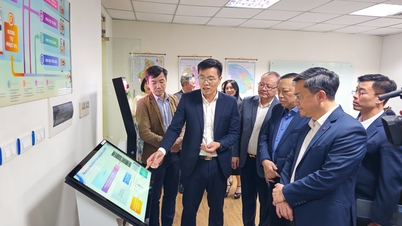
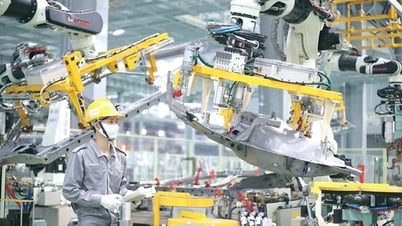

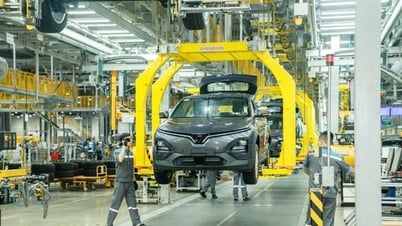
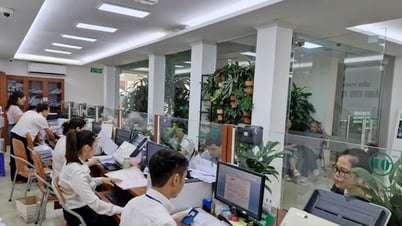















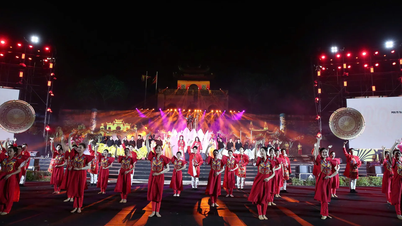




![[Photo] General Secretary To Lam attends the ceremony to celebrate the 80th anniversary of the post and telecommunications sector and the 66th anniversary of the science and technology sector.](https://vphoto.vietnam.vn/thumb/1200x675/vietnam/resource/IMAGE/2025/9/29/8e86b39b8fe44121a2b14a031f4cef46)

































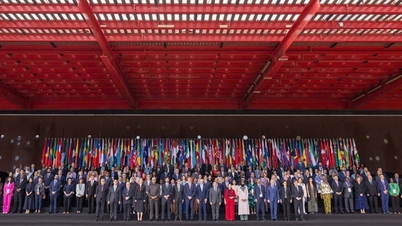
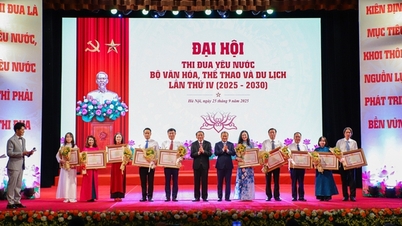




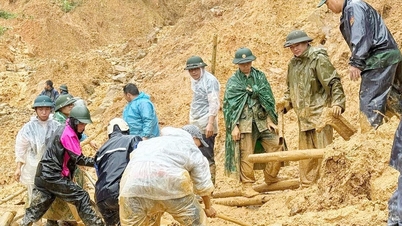

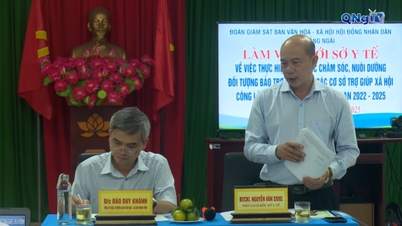

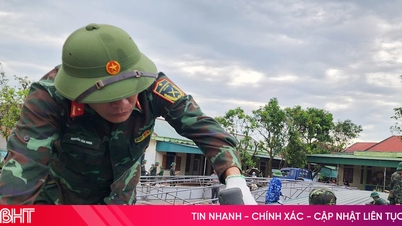

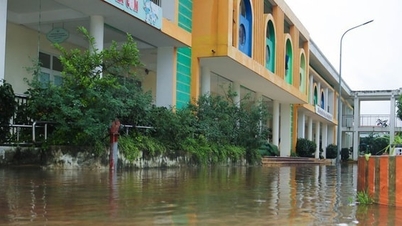
















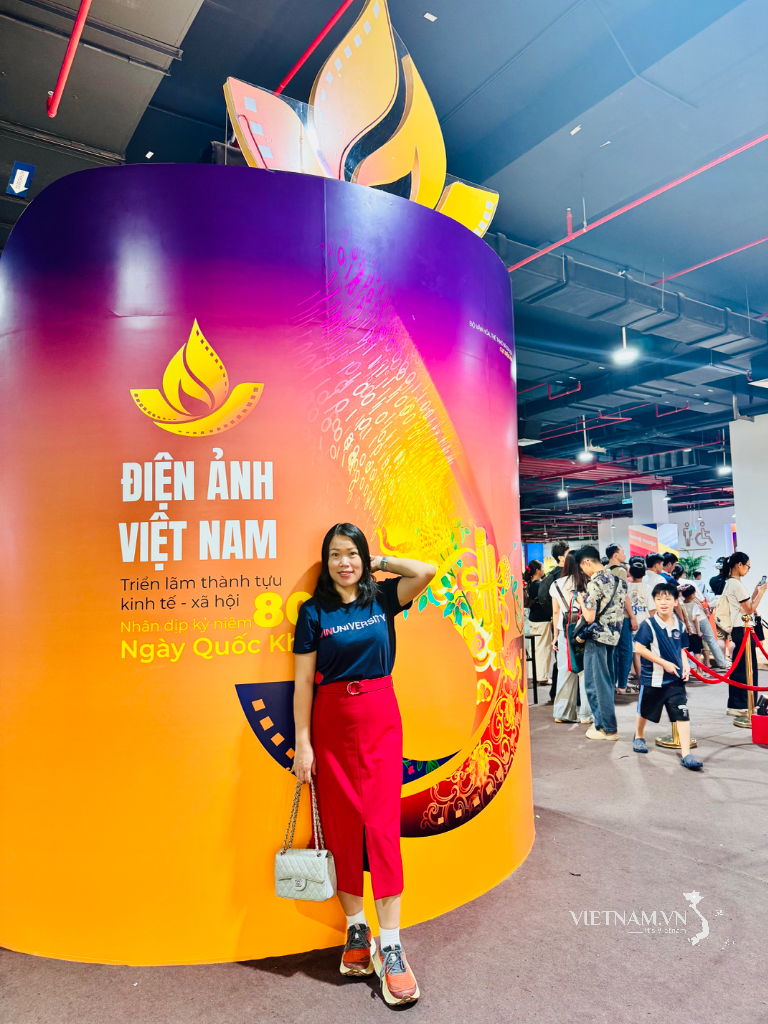

Comment (0)